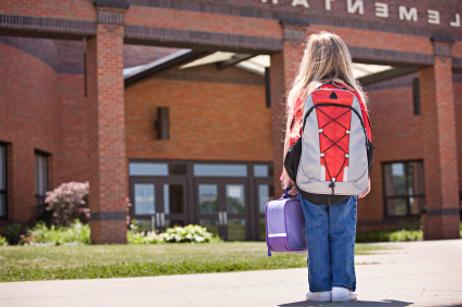Could homeschooling no longer be an option that parents and students have? Based upon recent legal rulings, children can be mandated into public school classrooms, with parents stripped of their right to administer homeschooling. For example, in North Carolina, a judge recently demanded that one mother’s home-schooled children be removed from her “at home classroom” in order to engage in more “challenging” curriculum provided by publically funded schools. What does this hold for the future of homeschooling?
The Verdict on Home School Rights
As World Net Daily reveals, a North Carolina judge has demanded that one family’s children be placed in public schools after debating whether or not the children were receiving adequate lessons and assessments at home. The mother, in this case, Vanessa Mills, argues that she initially pulled her children from the public school environment because she felt that her kids were not being sufficiently challenged. As such, for the past four years, Vanessa Mills has been taking charge of her children’s educational development through at-home lessons and instruction. While most parents can capably educate their children at home, the Mills case is rare and complex, as the children’s father brought the issue to trial, arguing that the efforts were not up to par.
According to the father’s lawyer, speaking on his client’s behalf, homeschooling has not provided his children with adequate socialization that can be achieved from the public school environment. Adding to these comments, the lawyer also revealed that the father of the home-schooled kids believes that Ms. Mills has done a “good job” homeschooling their children in the past; however, in looking towards their future, the father “Does not believe that continued homeschooling is in the best interest of the children."
Although the issue of whether or not the children should be homeschooled came to fruition amidst divorce proceedings between the two parents, the judge’s decision to overrule the mother’s desire to continue homeschooling is “raising eyebrows among homeschooling families.”
Most notably, opponents to this verdict are outraged by the fact that the children, in this case, have been tested, and they scored results above their standard grade levels. In fact, some of the test results show that the children are more than two years beyond standard performance expectations for their grade level. Additionally, a spokesperson for the mother of the children argued that “The children routinely had been testing at up to two years above their grade level, were involved in swim team and other activities and events outside their home and had taken leadership roles in history club events.”
The Controversy Surrounding the State vs. Home Schooling
While this North Carolina case has garnered the most publicity, it is not the only one. In fact, the Mills case arose not long after another court panel demanded that one family cease their home school efforts in favor of public school instruction. In this particular case, however, the Los Angeles 2nd Appellate District Court ultimately chose to reverse its initial decision, as the public outcry from the verdict resulted in tremendous protests from individual groups and Congress members.
According to California state law, homeschooling is permitted as a form of private school education; however, “That statutory permission for parents to teach their own children could be ‘overridden in order to protect the safety of a child who has been declared dependent.’”
However, despite the state’s legal right to intervene in homeschooling, groups opposed to the initial California verdict argue that parents should maintain the right and freedom to engage their children in the homeschool classroom. This gives parents the ability to provide their children with the most optimal instruction that the parents deem possible.
As stated by the Alliance Defense Fund, thousands of families across the state of California, as well as the nation, have been successful educators for their children using homeschooling methods. From their perspective, parents have a constitutional right to object to standard public education models in favor of alternative, private, and home-instruction models.
Whether or not homeschooled children can be forced into public schools will continue to be determined on a case-by-case basis. However, precedence has already been set by the legal rulings mandating that certain children attend public schools.
Questions? Contact us on Twitter. @publicschoolreview













